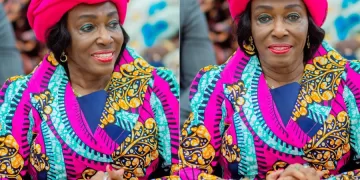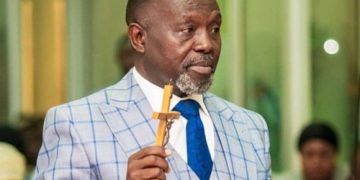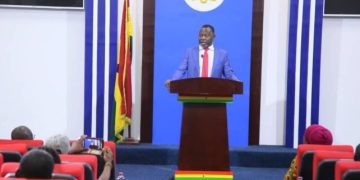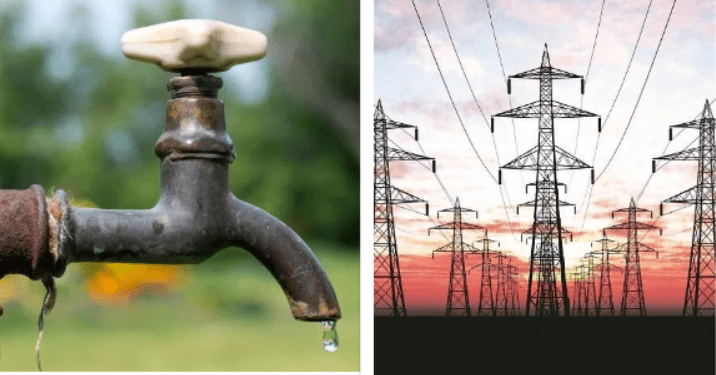Management of Public Utilities Regulatory Commission (PURC) are to meet the Parliamentary Select Committee on Mines and Energy to justify why consumers should pay more for water and electricity.
The utilities regulator announced a 29.96 per cent and 8.3 per cent increment in electricity and water tariffs respectively on Monday.
The new tariffs would take effect from February 1.
But Chairman of the Parliamentary Select Committee on Mines and Energy, Samuel Atta Akyea said PURC would have to explain how they arrived at the adjusted prices.
The Committee, he told TV3 on Wednesday, would “really probe further, is that all that you (PURC) can do, having regards to the situation we find ourselves now, then we will take a decision”
He said the Committee would also explore any other available options that would ameliorate the hardship the new increment would pose to consumers.
The PURC had said it considered four key factors in arriving at its decision. The Commission mentioned the Ghana Cedi/US Dollar exchange rate, inflation, generation mix and the weighted average cost of natural gas.
Mr. Atta Akyea however intimated that after the meeting, “if the underlining reasons [for the increment] are not good enough, and we interrogating the matter should come to that conclusion that there is a better option, then they will review the tariffs…If this is how we should go then [Ghanaians] should swallow the bitter pill”.
The Clerk to the Committee, the Chairman said, has been “instructed” to invite the PURC, but members of the Mines and Energy are yet to agree on a date for the meeting.
He admonished the utilities companies to consider clearing the “absurdity” in which some consumers are enjoying utilities without paying if they want to deal with under-recovery.
Below is the PURC’s statement announcing the price change
The Public Utilities Regulatory Commission (PURC) has concluded its regulatory process for the quarterly adjustment of utility tariffs covering the first quarter of 2023.
The process is in conformity with the Quarterly Tariff Review Mechanism and Guidelines as communicated in the Commission’s August, 2022 major tariff review decision.
The Quarterly Tariff Review Mechanism seeks to track and incorporate changes in key factors used in determining natural gas, electricity, and water tariffs. The objective is to maintain the real value of cost of supply of these utility services and ensure that utility companies do not under- or over-recover.
Under-recovery has negative implications for the ability of the companies to supply service to consumers, and has the potential of causing outages of electricity (DUMSOR) and water supply. Over-recovery unnecessarily overburdens consumers of electricity and water.
The Quarterly Tariff Review Mechanism is meant to ensure that none of these happens.
For the end-user electricity tariffs payable by consumers, the Commission considered four key factors in arriving at its decision. These were the Ghana Cedi/US Dollar exchange rate, inflation, generation mix and the weighted average cost of natural gas.
Since the announcement of the major tariff in August 2022, these key variables underlying the rate setting have changed significantly. For example, the weighted average Ghana Cedi US Dollar exchange rate used for the major tariff review was GHC7.5165 to the US Dollar. Since then, we have witnessed the depreciation of the Cedi against the US Dollar and other major currencies. The projected weighted average Ghana Cedi US Dollar exchange rate used in First Quarter 2023 Tariff Analysis is GHS10.5421/USD.
Additionally, the weighted average inflation figure used for the major tariff has seen a four-fold increase. Together with exchange rate movements this has negatively affected the ability of the utilities to purchase critical inputs required for their operations. The Commission used a projected inflation rate of 42.63% in its tariff analysis for the First Quarter of 2023.
The Weighted Average Cost of Gas (WACOG) used for First Quarter of 2023 is USD6.0952/MMBtu. In the major tariff review in September 2022, the WACOG was USD5.9060/MMBtu. With respect to electricity generation mix, a hydro-thermal mix of 26.11% for hydro and 73.89% for thermal was used for First Quarter of 2023.
The combined effect of the Cedi/US Dollar exchange rate, inflation and WACOG is that the utility companies are significantly under-recovering and require an upward adjustment of their tariffs in order to keep the lights on and water flowing.
The PURC is equally mindful of the current difficult economic circumstances, but notes that the potential for outages would be catastrophic for Ghana and has to be avoided. The PURC therefore sought to balance prevention of extended power outages and its deleterious implications on jobs and livelihoods with minimising the impact of rate increases on consumers.
The Commission therefore decided to increase the average end-user tariff for electricity by 29.96% across the board for all consumer groups (Table 1). The average end-user tariff for water has also been increased by 8.3% (Table 2). The Commission, however, approved varying rate adjustments including some reductions for selected industrial and commercial consumers as part of the ongoing restructuring of the existing water rate structure.
The PURC is grateful to all stakeholders for their support as it continues to implement quarterly tariff reviews in accordance with its Rate Setting Guidelines for Quarterly Review of Natural Gas, Electricity and Water Tariffs. In doing so, the Commission will continue to equitably balance the interests of the Utility Service Providers and Consumers and hold service providers to strict adherence to regulatory standards and benchmarks.
The Commission’s decision will be published in the Gazette in due course and will be available on the Commission’s website: www.purc.com.gh
Dr. Ishmael Ackah
Executive Secretary



























